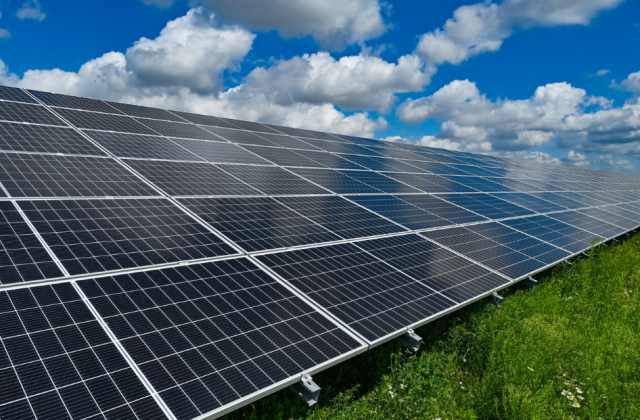
SEOUL, May 27 (AJP) - The South Korean government has launched a review of the nation’s solar inverter market as concerns mount globally over the security risks posed by Chinese-made energy equipment.
The Ministry of Trade, Industry and Energy said Tuesday that it convened a meeting last week with major domestic solar companies — including Hanwha Q Cells, Hyundai Energy Solutions, and Hyosung Heavy Industries — to assess the state of the country’s solar inverter sector.
Solar inverters, which convert direct current electricity from solar panels into alternating current for homes, factories, and the grid, are often referred to as the “brains” of solar systems. Their remote connectivity makes them both essential and potentially vulnerable to cybersecurity threats.
Alarm bells have been ringing in the United States and Europe after investigators uncovered unlisted communication modules embedded in Chinese-manufactured inverters — raising fears that such devices could be exploited for espionage or sabotage. U.S. officials have warned that compromised inverters could be used to disrupt power grids or leak sensitive operational data.
Those concerns are especially acute in South Korea, where Chinese brands dominate the market. Industry sources estimate that 90 to 95 percent of inverters deployed in the country originate from Chinese manufacturers.
“There is growing unease about potential vulnerabilities in our power grid,” said one industry source who spoke on condition of anonymity due to the sensitivity of the matter.
In Europe, similar fears have surfaced following recent large-scale blackouts in Spain and Portugal. Though investigations are ongoing, some cybersecurity experts have pointed to possible links between foreign-made inverters and the outages.
In a related move, South Korea’s trade ministry announced it would, for the first time, incorporate cybersecurity and domestic supply chain considerations into the evaluation process for offshore wind power projects.
Under the new criteria, companies will receive higher scores for using domestically produced components and technologies — a shift aimed at reducing reliance on foreign equipment while bolstering grid resilience.
The revised assessment will also weigh the stability of energy generation and supply, placing greater emphasis on national security in the country’s energy transition.
Copyright ⓒ Aju Press All rights reserved.

